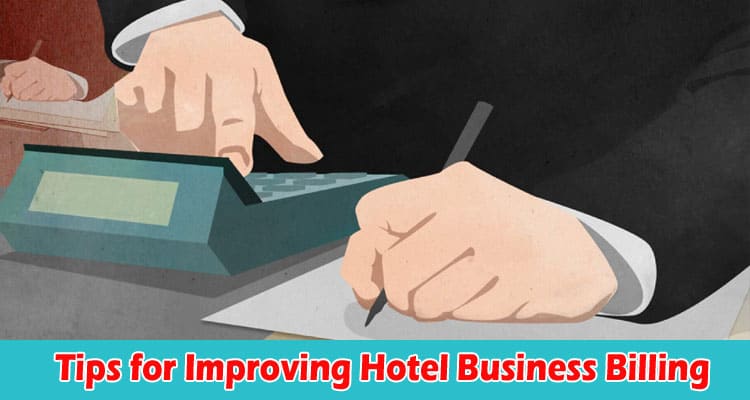Hotel billing bliss is a state of financial harmony that is achievable through efficient invoicing processes. Streamlining invoicing processes can help to ensure that money is collected in a timely manner, accounting records are accurate, and customers are happy. But how can hoteliers streamline their invoicing processes? In this article, we will explore tips for achieving hotel billing bliss through streamlining invoicing processes and creating a seamless customer experience.
Overview of Invoicing For Hotel Businesses
Invoicing is one of the most important aspects of running a hotel business. Not only does it help you to better manage your finances, but it also allows you to keep track of what services were provided and how much they cost.
An invoice is simply a document that details the services or goods provided by a company and how much they cost. Invoices can be used for anything from products sold at retail stores, to services rendered by businesses such as hotels or restaurants.
The first step in creating an effective invoice is determining who will receive it: customers or vendors?
Use Digital Tools to Leverage Invoice Data
The data you collect from your invoices can be used to improve your business in many ways.
Embracing digital solutions can help to further streamline your hotel’s billing process. There are a variety of digital solutions that can help improve efficiency and reduce errors. Consider using solutions such as automated hotel invoices in automated billing systems and cloud-based accounting systems. These solutions can help automate manual tasks and reduce errors.
Another benefit of digital solutions is that they can help improve the customer experience. Digital solutions such as online payment processors can make payments easier and faster for customers. This can help reduce customer frustrations and create a smoother, more seamless billing process.
Following Up On Unpaid Invoices
If you’ve been in business for a while, you know how important it is to follow up on unpaid invoices. The longer an invoice goes unpaid, the less likely it will be paid. Here are some tips for following up on outstanding invoices:
- Use a reminder service that sends out automated emails or text messages reminding clients that they have an outstanding invoice and giving them instructions on how to pay it.
- Send a letter by postal mail if you haven’t heard from the client after several weeks of sending reminders via email or text message (or both).
- Call them on the phone and talk directly with them about why they haven’t paid yet – and ask what else needs to happen in order for them to pay off their balance?
Creating an Effective Invoice
When making your own invoice, it is important to include all relevant information. Make sure that your client understands what they are paying for and when they need to pay it by including:
- A payment due date (and if possible, a reminder of that date)
- The address where payments should be sent
- Whether or not payment can be made via check or credit card, along with the necessary information required by each method
Setting Up Automated Payment Reminders
While it’s important to set up automated reminders for your customers, it’s also important to make sure that you’re not sending too many emails. If you have more than one reminder set up, try putting them all in one email so that the customer only has to check their inbox once per day. This will help ensure that they don’t miss any of your messages and can pay on time or enter into a payment plan as needed.
If someone does end up missing a payment reminder email from you, there are other ways for them to stay informed about their invoices:
Set up an auto-reply message in Gmail or another email provider where customers can reply back with questions about payments and invoice status updates (this might be especially helpful if clients frequently forget about due dates). You could also set up an auto-reply message just for people who have missed reminders or haven’t responded within 24 hours – for example: “I received no response from [client name] within 24 hours after sending my last invoice reminder; please contact me at [phone number] if this was an oversight.”
Conclusion
With a little effort, you can turn your invoicing nightmares into dreams. By implementing the tips above and following up on unpaid invoices, you can ensure that your hotel business receives payments on time and in full.







